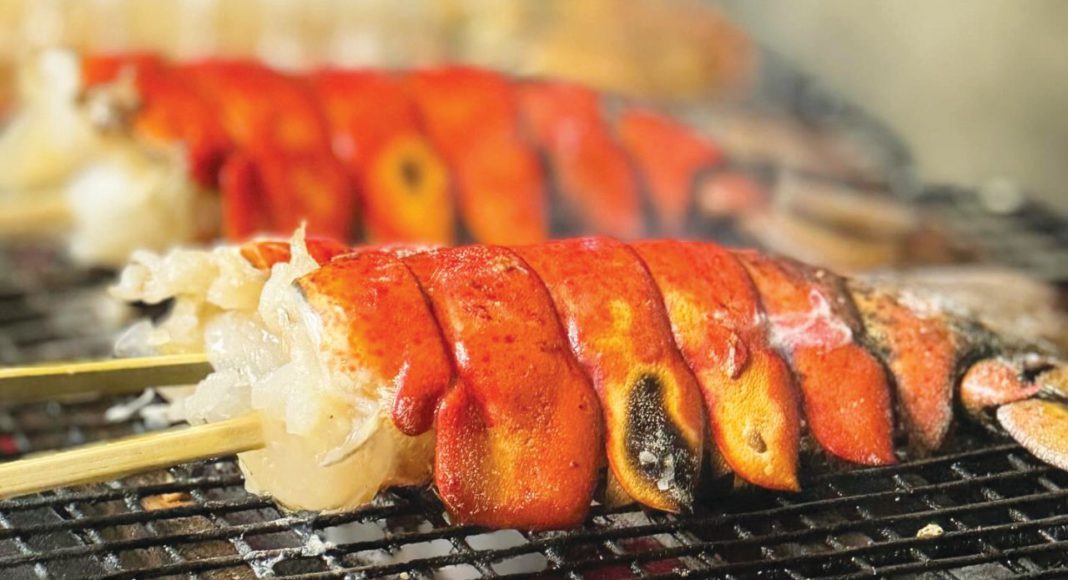Chef Jerry Liang’s favorite yakitori dish to prepare at Drunken Monk is soriresu ($8), a.k.a. chicken oysters.
“I had it once in Japan and it’s really good,” Liang recalls. “I wanted to make them for my customers.” He describes soriresu as, “the very tender, juicy part of the chicken.” The chef grills them over charcoal with just salt and a little bit of pepper.
Liang opened Drunken Monk with Khloe Mak who manages front of house operations as well as the extensive sake menu. “We offer unique, premium sake imports from Japan,” according to Mak. “These are delivered directly from the breweries via refrigerated trucks to a refrigerated warehouse in Tokyo.”
Drunken Monk is setting out to become a traditional Japanese izakaya. The bar’s main focus is sake while the kitchen serves small dishes such as karaage and gyoza, and larger plates of donburi. “A drunken monk symbolizes breaking free from societal expectations and rigid constraints,” writes the restaurant’s website. Liang says it’s a space where, “people have a place to relax and take a break from everyday stresses.”
To make yakitori dishes such as soriresu and tsukune ($12), or chicken meatballs, the chef uses a binchotan charcoal grill. “Compared to conventional ovens or an electric gas grill, it requires a focused, intense cooking skill because everything relies on the charcoal,” says Liang. “It’s hard to adjust the temperature and the flame during the grilling process.”
There are two traditional Japanese approaches to grilling—salt grilling, or shio and grilling with a tare sauce. Liang uses both to impart flavor. “For yakitori, a chef would never marinate the chicken [before grilling] because they want to retain the original flavor of the meat,” he says. When the chef grills with tare sauce, it’s added when the meat is already on the grill.
To make Drunken Monk’s popular tsukune, Liang takes “the best parts of the chicken” and grinds them together. The meatballs are served with a homemade sweet and salty dipping sauce that the chef said achieves an umami flavor.
Liang’s been cooking Japanese cuisine professionally for a decade. He used to have a ramen shop in San Francisco. The chef also worked in a commercial kitchen that catered Japanese rice bowls.
“I’m Chinese and a lot of people ask me why I’m cooking something different from my culture,” he says. “My answer is—cooking Japanese food is my passion. I love noodles. I love the umami flavors.”
During the pandemic, Liang found that serving ramen to-go wasn’t viable. After three years in San Francisco, he closed his ramen shop in 2020. Mak, who also had years’ worth of experience working in Japanese restaurants, was one of Liang’s wife’s best friends. After closing up his shop, they decided to combine their different skill sets to come up with a new idea—an izakaya.
Japanese food also reminds Liang of his childhood and eating the cuisine with his family. “I still remember the taste of it and that’s what I want to share.”
1438 El Camino Real, Menlo Park
650.384.6668
DrunkenMonkIzakaya.com
Closed Tuesdays



